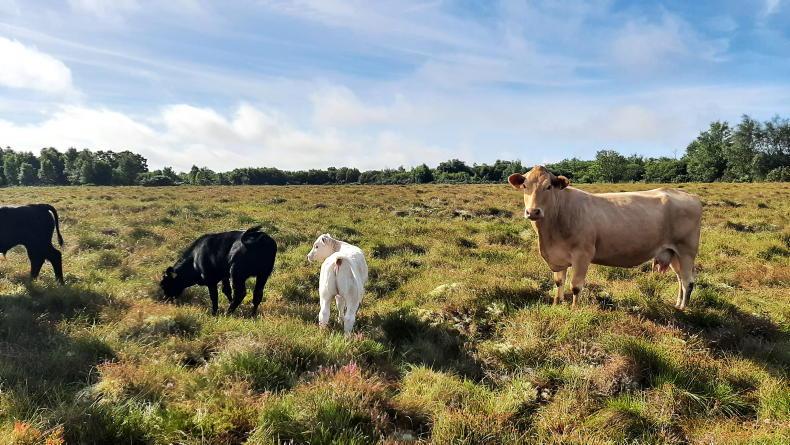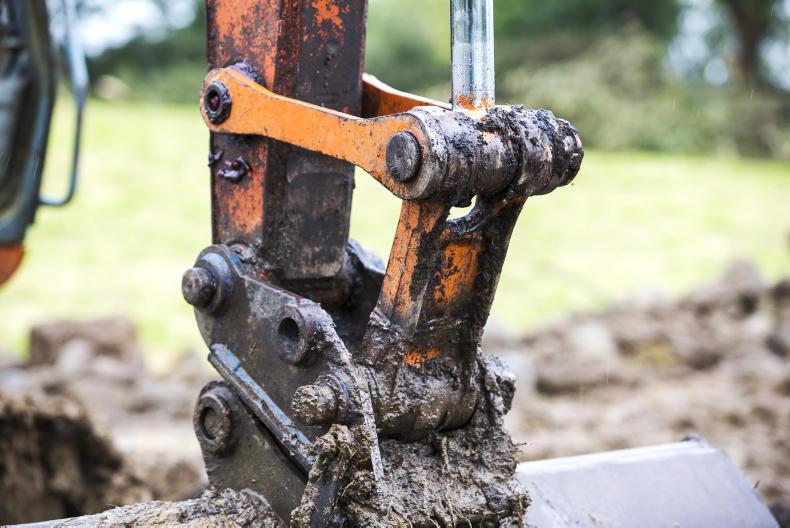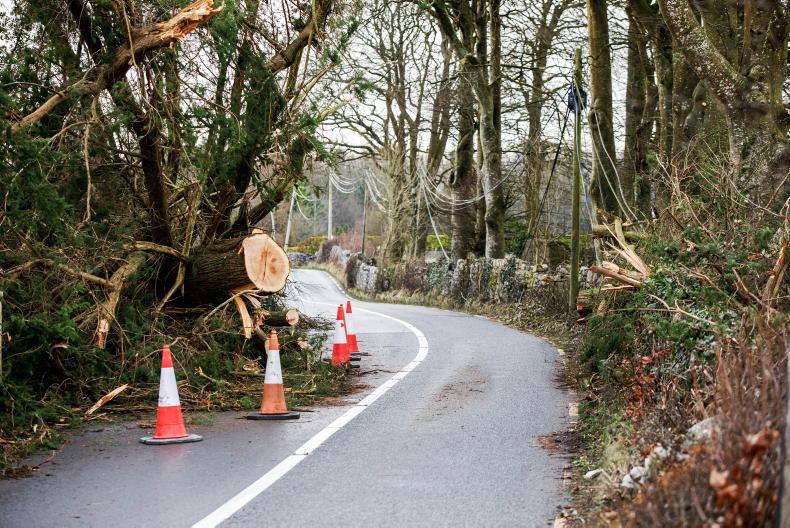Rewetting farmland and ceasing the drainage works on peatlands will not flood vast tracts of farmland, but will allow farmers to continue grazing, chair of the Joint Oireachtas Committee on the Environment Brian Leddin TD has said.
Deputy Leddin’s comments come after the environmental committee published a biodiversity report, which recommended a review of both the Arterial Drainage Act and the nitrates derogation.
He referred to the drainage regulation as a “crude piece of legislation” which was drawn up in the 1940s, leading to “unnecessary drainage of our farmland even from a point of view of food production”.
'Misinformation'
“There is a lot of misinformation with the rewetting of land and the Arterial Drainage Act. We heard during the week that it is not about flooding farmland, that’s not what it is about,” Deputy Leddin said.
“That is a narrative that is out there unfortunately. It is about raising the water table and we heard evidence from experts this week that, in many cases, that will allow grazing and food production [to] continue.”
Deputy Leddin's assessment of rewetting allowing a continuation of grazing was supported by his committee colleagues Christopher Sullivan TD, Senator Pauline O'Reilly and Darren O'Rourke TD.
Some changes needed
The report acknowledged that farmers must “change their approach” to managing peatland and wetland areas under restoration measures, the report states.
This would include a reduction in grazing activity and introducing “animals from uplands” peatlands to aid restoration, it said.
Earlier this week, the committee was told that farmers could be paid up to €15,000/ha to grow moss, which would replace milled peat used for growing fruit and vegetables.
The European Commission also notes in its plans to introduce a nature restoration law that buffalo grazing is possible for those farming rewet peats.
Farmer biodiversity supports
The report also called for the establishment of a “robust” agri-environmental scheme to be established to pay farmers to implement biodiversity measures.
Noted also by policymakers in the report was that farmer payments of €500/ha are needed to make the organic farming scheme more attractive to farmers than conventional agri-environmental schemes.
On the possibility of a reduction in the national herd, Deputy Leddin commented that a forced reduction was something he “certainly wouldn’t agree with” if compulsory for farmers.
He suggested that a reduction support scheme is something that could be considered, if voluntary for farmers.
“We have to change our systems to bring the farming sector with us. We have to give the farming sector opportunities to diversify and make it worth their while to diversify,” the committee chair said.
Read more
Farmland rewetting measures rolled back in scale
National Parks acquires 4,500ha of Coillte land in Mayo
Review nitrates derogation and end drainage of peatlands – report
Rewetting farmland and ceasing the drainage works on peatlands will not flood vast tracts of farmland, but will allow farmers to continue grazing, chair of the Joint Oireachtas Committee on the Environment Brian Leddin TD has said.
Deputy Leddin’s comments come after the environmental committee published a biodiversity report, which recommended a review of both the Arterial Drainage Act and the nitrates derogation.
He referred to the drainage regulation as a “crude piece of legislation” which was drawn up in the 1940s, leading to “unnecessary drainage of our farmland even from a point of view of food production”.
'Misinformation'
“There is a lot of misinformation with the rewetting of land and the Arterial Drainage Act. We heard during the week that it is not about flooding farmland, that’s not what it is about,” Deputy Leddin said.
“That is a narrative that is out there unfortunately. It is about raising the water table and we heard evidence from experts this week that, in many cases, that will allow grazing and food production [to] continue.”
Deputy Leddin's assessment of rewetting allowing a continuation of grazing was supported by his committee colleagues Christopher Sullivan TD, Senator Pauline O'Reilly and Darren O'Rourke TD.
Some changes needed
The report acknowledged that farmers must “change their approach” to managing peatland and wetland areas under restoration measures, the report states.
This would include a reduction in grazing activity and introducing “animals from uplands” peatlands to aid restoration, it said.
Earlier this week, the committee was told that farmers could be paid up to €15,000/ha to grow moss, which would replace milled peat used for growing fruit and vegetables.
The European Commission also notes in its plans to introduce a nature restoration law that buffalo grazing is possible for those farming rewet peats.
Farmer biodiversity supports
The report also called for the establishment of a “robust” agri-environmental scheme to be established to pay farmers to implement biodiversity measures.
Noted also by policymakers in the report was that farmer payments of €500/ha are needed to make the organic farming scheme more attractive to farmers than conventional agri-environmental schemes.
On the possibility of a reduction in the national herd, Deputy Leddin commented that a forced reduction was something he “certainly wouldn’t agree with” if compulsory for farmers.
He suggested that a reduction support scheme is something that could be considered, if voluntary for farmers.
“We have to change our systems to bring the farming sector with us. We have to give the farming sector opportunities to diversify and make it worth their while to diversify,” the committee chair said.
Read more
Farmland rewetting measures rolled back in scale
National Parks acquires 4,500ha of Coillte land in Mayo
Review nitrates derogation and end drainage of peatlands – report










SHARING OPTIONS